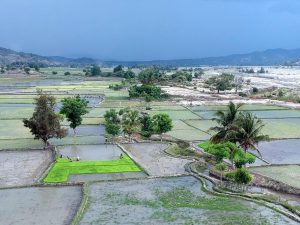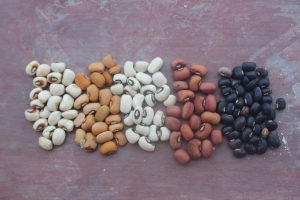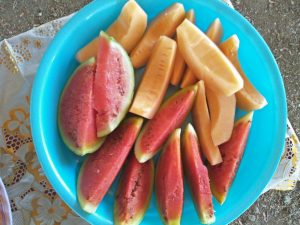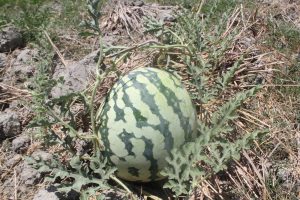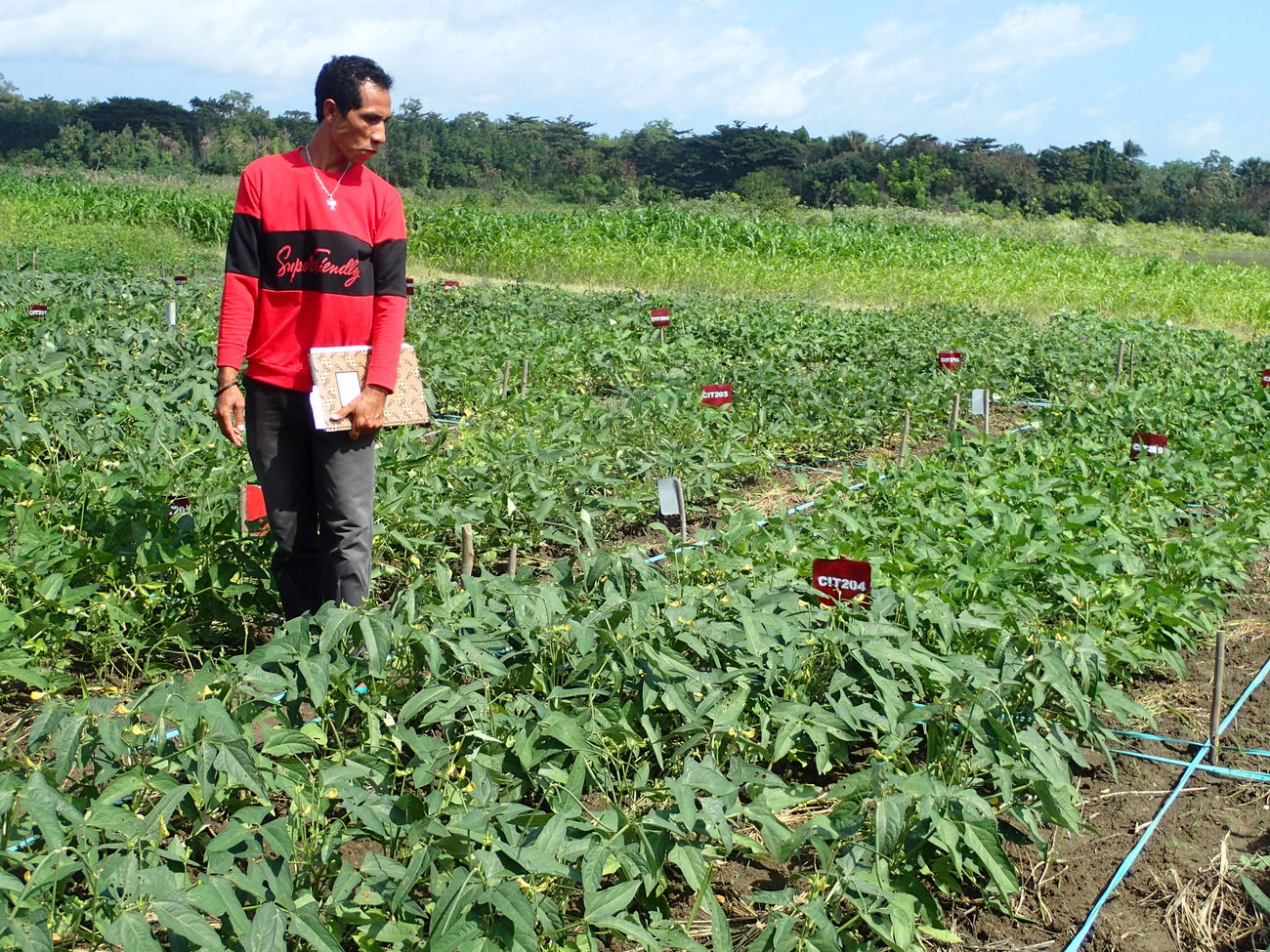Oxfam Timor-Leste has this month reported promising results of its tests of AI-Com innovations with its team and farmers’ groups in Suai.
Suai is on Timor-Leste’s hot, flat south coast – an area people think is very unsuitable for common beans, the fibre-rich staple crop critical to good nutrition for farming families.
But after AI-Com research last year discovered that the cold-climate beans could in fact be planted on the south coast, if they were planted at the right time of year, Oxfam Timor-Leste tested growing common beans at its Dili office. And last June – the time for planting common beans at sea level – they worked with a farmers’ group called Fitun Naroman, or ‘shining star’, to plant common beans on farms in Suai.
Oxfam Timor-Leste’s food security officer, Carlos Correia, said at the time that most visitors to the Dili office had been sceptical that the plants could produce pods; they did, and Fitun Naroman’s plants also produced a good yield – the seeds of which the group is now saving to plant again this coming June.
Now, Oxfam Timor-Leste is continuing its adoption of AI-Com innovations, testing rice hull biochar – an organic fertiliser made locally from discarded rice hulls – using mulch and biochar on red bean plants growing at its office in Suai. The plants were planted in poor, sandy soil with gravel rocks on 4 July 2018, and after just over five weeks were producing pods.
Biochar is known to increase crop yields in Timor-Leste, and Oxfam Timor-Leste is now working with Fitun Naroman and the Suai-based NGO Fini Esperansa, or ‘seeds of hope’, to train farmers on how to make and use it in their farms.
Fini Esparansa says that previously, they would give away discarded rice hulls for people to use to make potting mix. But now, they take the hulls to make and sell their own biochar, and help farmers grow vegetables.
With these innovations, local and international groups and NGOs can help farming families improve the quantity and the quality of the food they grow, contributing to improved nutrition, health and livelihoods in farming communities across Timor-Leste.
